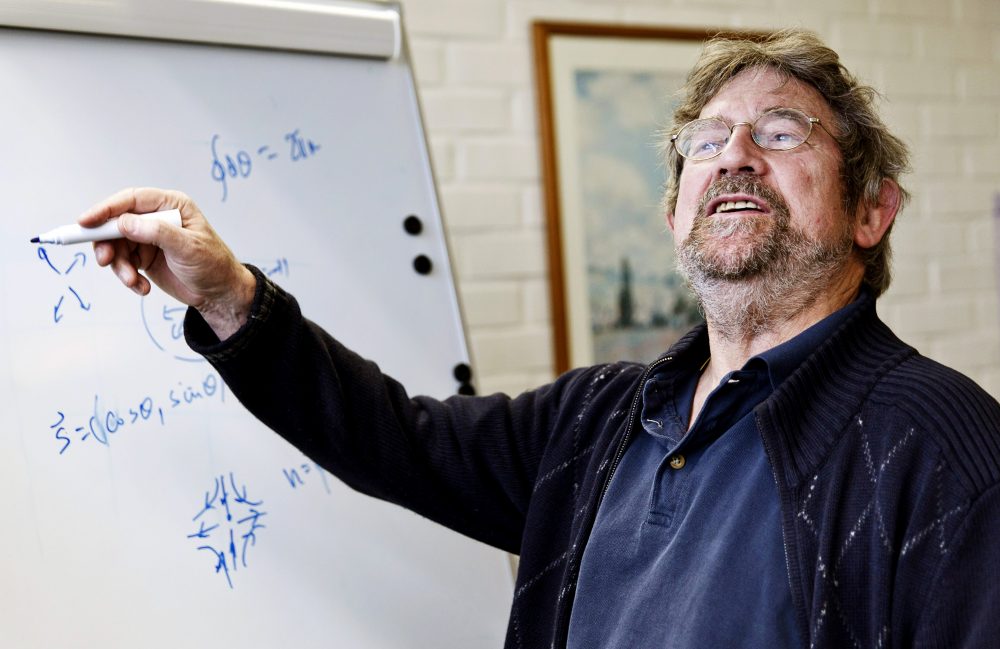Advertisement
3 British-Born Physicists Win Nobel Prize For Work On Unusual States Of Matter
Resume
This morning the Royal Swedish Academy of Sciences awarded David Thouless, Duncan Haldane and Michael Kosterlitz this year's Nobel Prize in physics for research on the superconductivity of materials so thin that they only have one or two dimensions instead of three.
The academy said the laureates' work in the 1970s and '80s opened the door to a previously unknown world where matter takes unusual states or phases.
"Their discoveries have brought about breakthroughs in the theoretical understanding of matter's mysteries and created new perspectives on the development of innovative materials," the academy said.
Brad Marston, a professor of physics at Brown University, joins Here & Now's Jeremy Hobson to discuss how the prize winners' research could improve materials for electronics or quantum computers.
With reporting from the Associated Press.
Guest
Brad Marston, professor of physics at Brown University.
This segment aired on October 4, 2016.